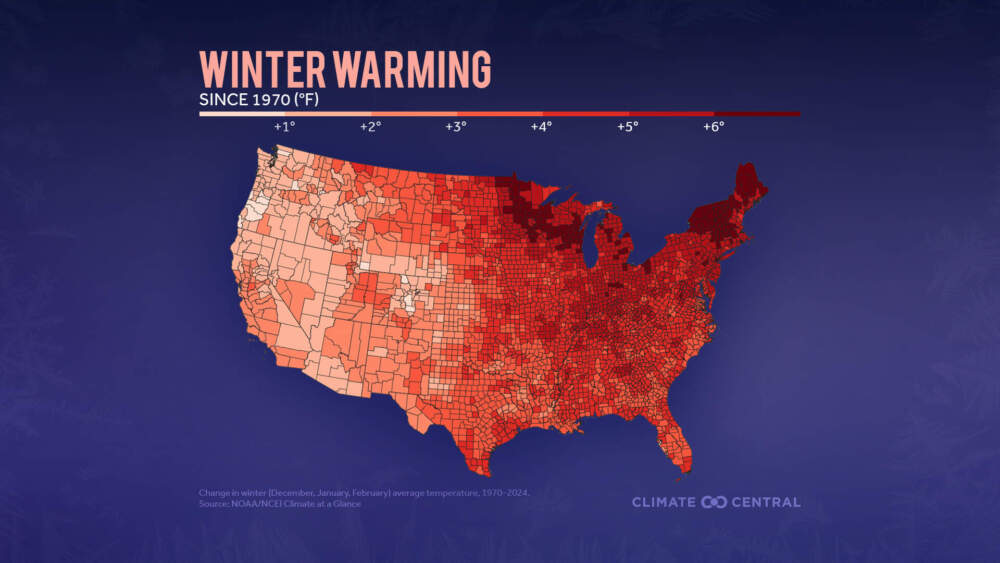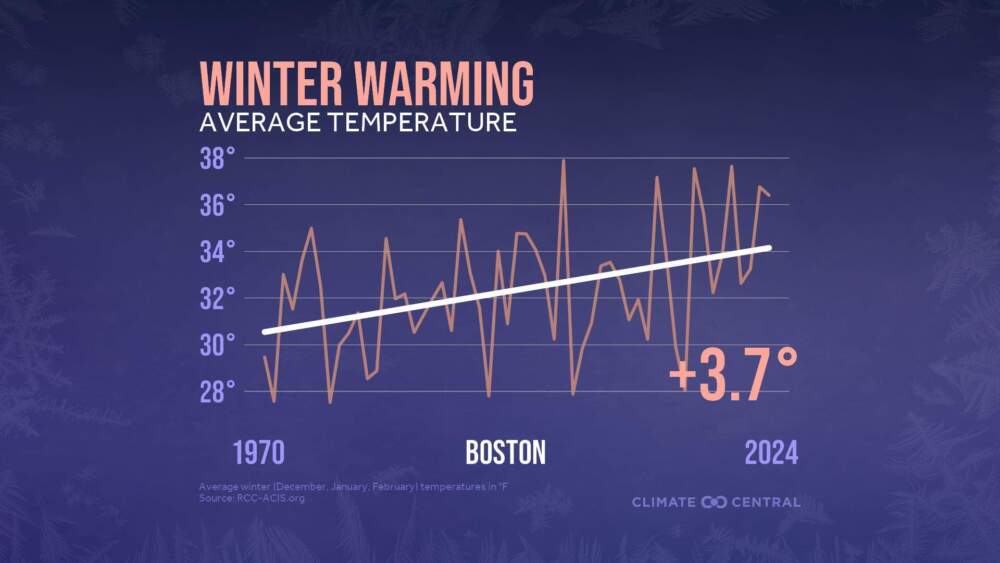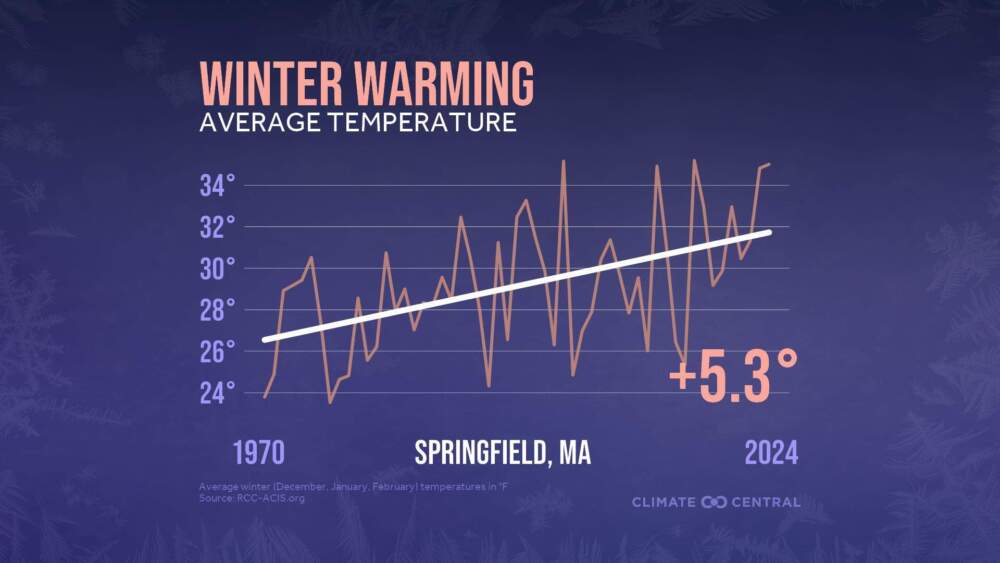Advertisement
Mass. winters are getting warmer. Climate scientist calls it a 'Delightmare'

Massachusetts gets 11 more above-freezing days in the winter due to climate change, according to a new report. And while many New Englanders may welcome this change, it does come with downsides.
The finding comes from the nonprofit research group Climate Central, which looked at winter warming trends across the Northern Hemisphere over the last decade, and analyzed how much of the warming was attributable to climate change.
The report found that two other New England states — Connecticut and Rhode Island — are also experiencing an additional 11 days above freezing each winter due to climate change.
"In New England, we know that winters are warming, often warming faster than other seasons of the year," said Pamela Templer, a biology professor at Boston University who was not involved with the Climate Central report. She said the warmer winters mean more rain, less snow, "and when it does fall, it lasts for shorter periods of time on the ground."
Warmer winters may allow local farmers to grow new crops, but can harm traditional fruit crops like apples that need cold days to produce fruit. The warmth can also disrupt businesses, like local ski resorts and traditions, like New Hampshire pond hockey. And a shorter cold season also means a longer spring allergy season and more health threats from ticks and mosquitoes.

Climate scientist Christina Dahl calls warmer winters a “Delightmare.”
"Everybody likes a little break from the winter, but when you really stop and think about why it's warm and what that means for our ecosystems and for our planet, it's kind of a nightmare," said Dahl, the vice president for science at Climate Central.
Average winter temperatures increased over much of the country since 1970, according to Climate Central. The top winter warming location in the U.S. was Burlington, Vt. which now averages 8.2 degrees Fahrenheit warmer than in 1970.
The average winter temperature in Boston has gone up by 3.7 degrees Fahrenheit since 1970.

In Springfield, the average winter temperature has increased by 5.3 degrees Fahrenheit since 1970.

Experts predict that 2024 will be Earth’s hottest year on record, and that the global average temperature will exceed 1.5 degrees Celsius above pre-industrial levels — the threshold set by the 2015 Paris Climate Accord.
Dahl expects the winter temperatures to continue to rise.
"The longer we emit heat-trapping gases from burning fossil fuels like coal, oil and gas, the more we can expect to see our winters warm," she said.
